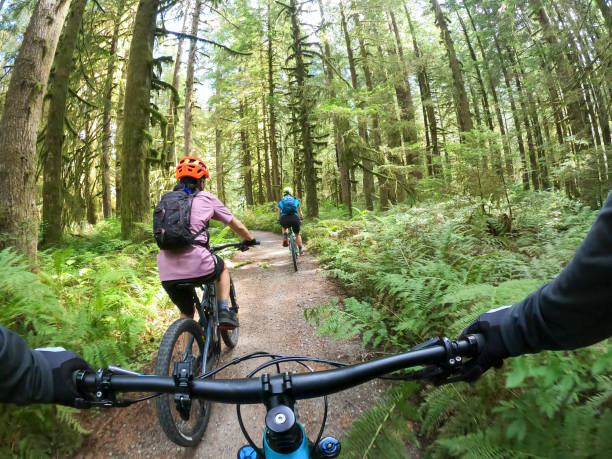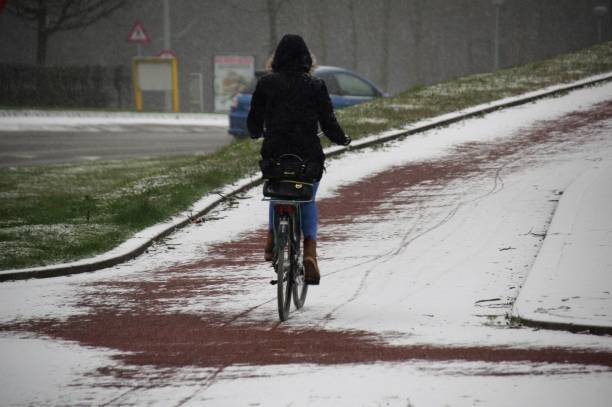Best Bikepacking Routes in North America
This post contains affiliate links. This means I will make a commission at no extra cost to you should you click through and make a purchase. Read the full disclosure here.
Bikepacking in North America offers an incredible variety of landscapes, from rugged mountains to vast deserts and lush forests. Whether you’re seeking high-altitude challenges, desert solitude, or lush forest trails, there’s an adventure waiting for every type of bikepacker. This article explores some of the best bikepacking routes North America has to offer, highlighting their unique features and challenges.
Key Takeaways
- Great Divide Mountain Bike Route: Epic 2,700-mile journey along the Rocky Mountains from Canada to Mexico.
- Arizona Trail: 800-mile diverse route through Arizona’s stunning landscapes.
- Colorado Trail: Challenging 535-mile high-altitude route through the Colorado Rockies.
- Oregon Timber Trail: 670-mile backcountry route showcasing Oregon’s diverse ecosystems.
- Kokopelli Trail: 150-mile desert adventure from Colorado to Utah.
- Vancouver Island Circle Route: 500-mile coastal journey around Vancouver Island, Canada.
Great Divide Mountain Bike Route (GDMBR)

Overview: The Great Divide Mountain Bike Route is the crown jewel of North American bikepacking. This 2,700-mile route stretches from Banff, Alberta, to the US-Mexico border in Antelope Wells, New Mexico, following the Continental Divide through the Rocky Mountains.
Key Features:
- Length: 2,700 miles (4,345 km)
- Terrain: Mostly unpaved roads and trails
- Elevation Gain: Over 200,000 feet (60,960 m)
- Best Time: June to September
Highlights:
- Diverse landscapes ranging from alpine meadows to desert plains.
- Remote wilderness with abundant wildlife sightings.
- Cultural experiences in small mountain towns.
Arizona Trail

Overview: The Arizona Trail spans 800 miles across the state of Arizona from Mexico to Utah. This diverse route offers a mix of desert, mountain, and canyon landscapes, appealing to bikepackers who seek both variety and challenge.
Key Features:
- Length: 800 miles (1,287 km)
- Terrain: Mix of singletrack, dirt roads, and some paved sections
- Elevation Gain: Approximately 110,000 feet (33,528 m)
- Best Time: Spring (March-May) or Fall (September-November)
Highlights:
- Passes through the iconic Grand Canyon.
- Features ecosystems from the Sonoran Desert to alpine forests.
- Rich Native American history and archaeological sites.
Colorado Trail

Overview: The Colorado Trail offers a challenging high-altitude adventure, running 535 miles from Denver to Durango. This trail provides breathtaking views of the Rocky Mountains and is a true test of endurance for experienced bikepackers.
Key Features:
- Length: 535 miles (861 km)
- Terrain: Mostly singletrack with some dirt roads
- Elevation Gain: About 89,000 feet (27,127 m)
- Best Time: July to September
Highlights:
- Stunning alpine scenery and wildflower meadows.
- Opportunities to summit several 14,000-foot peaks.
Oregon Timber Trail

Overview: The Oregon Timber Trail is a 670-mile backcountry route that highlights the diverse landscapes of Oregon. It stretches from the California border to the Columbia River Gorge, offering a unique blend of forest, mountain, and high desert riding.
Key Features:
- Length: 670 miles (1,078 km)
- Terrain: Mostly singletrack and forest roads
- Elevation Gain: Over 70,000 feet (21,336 m)
- Best Time: July to September
Highlights:
- Passage through four distinct ecoregions.
- Remote wilderness experiences.
- Rich logging and Native American history.
Kokopelli Trail

Overview: Connecting Fruita, Colorado, to Moab, Utah, the Kokopelli Trail is a 150-mile desert adventure that offers a mix of technical singletrack and scenic dirt roads. The route showcases the iconic red rock landscapes of the American Southwest.
Key Features:
- Length: 150 miles (241 km)
- Terrain: Mix of singletrack and dirt roads
- Elevation Gain: About 16,000 feet (4,877 m)
- Best Time: Spring (April-May) or Fall (September-October)
Highlights:
- Stunning desert vistas and rock formations.
- Technical riding challenges.
- Access to world-famous mountain biking destinations.
Vancouver Island Circle Route

Overview: The Vancouver Island Circle Route offers a 500-mile journey around the perimeter of Vancouver Island in British Columbia, Canada. This coastal route combines rainforest, beach, and mountain riding, offering a unique and varied experience.
Key Features:
- Length: 500 miles (805 km)
- Terrain: Mix of paved roads, gravel, and forest service roads
- Elevation Gain: Varies depending on the chosen route
- Best Time: June to September
Highlights:
- Spectacular coastal scenery and beaches.
- Opportunities for wildlife viewing, including whales and bears.
- Rich First Nations culture and history.
Conclusion
North America is a bikepacking paradise, offering routes that cater to every level of experience and preference. Whether you’re drawn to the epic challenge of the Great Divide Mountain Bike Route or the coastal beauty of the Vancouver Island Circle Route, these trails showcase the best of the continent’s diverse landscapes and cultures. For adventurers on two wheels, the journey is always as rewarding as the destination.
Frequently Asked Questions (FAQ)
What is the best time of year for bikepacking in North America?
The best time varies by region, but generally, late spring to early fall (May to September) offers the most favorable conditions for most routes.
How long does it take to complete these routes?
Completion time depends on the route and individual pace. The Great Divide Mountain Bike Route typically takes 2-3 months, while shorter routes like the Kokopelli Trail can be completed in 3-5 days.
Do I need a special bike for these routes?
A mountain bike or gravel bike is suitable for most routes, but the specific choice depends on the terrain. Research your chosen route to determine the most appropriate bike and tire setup.
Are these routes suitable for beginners?
Some routes, like sections of the Vancouver Island Circle Route, are suitable for beginners. However, many of these routes are challenging and require good fitness and bikepacking experience.
How do I prepare for a long-distance bikepacking trip?
Preparation involves physical training, gear selection and testing, route planning, and learning necessary skills such as bike maintenance and wilderness first aid.








